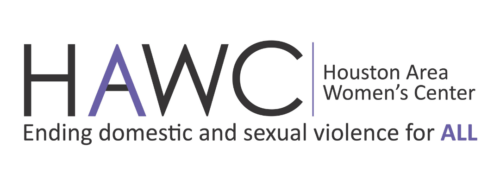A new study has found that Texas has the highest number of rape-related pregnancies among all states with abortion bans. Another recent study shows that Hispanic women experienced the greatest increase in fertility rates during the time of the bans. This is further evidence of how common rape is in Texas, a state where abortion is not an option even in the case of rape or incest. It also solidifies concerns that these bans would not be felt evenly across all demographics.
The impacts of violence are often felt disproportionately by communities that are already marginalized and have historically not been provided equitable access to resources and services. These communities are now experiencing escalating, unjust consequences. “It is important for us to talk about these issues through a gender and racial lens,” says HAWC Deputy CEO Sonia Corrales. “It is now evident that the abortion ban is impacting certain populations more than others, proving it to be yet another systemic barrier for historically oppressed communities.”
HAWC works directly with survivors of sexual assault and sees women of color, often Hispanic women, facing many challenges in accessing reproductive care, contraception, abortion, the ability to take time off from work, transportation, and childcare. Data indicates that one of these populations is now most impacted by the abortion ban.
According to a JAMA study, in the 14 states that implemented total abortion bans, an estimated 519,981 completed rapes were associated with 64,565 pregnancies during the months the bans were in effect. Of these 64,565 rape-related pregnancies, an estimated 91% occurred in states with no rape exemption and 45% of those were in Texas.
The volume of calls into HAWC’s sexual assault hotline far outnumbers the number of sexual assaults reported in Harris County. As data overwhelmingly shows us, sexual assault is extremely underreported, with less than 10% of all sexual assaults reported to law enforcement. This shows that, even in states where rape exemptions exist, this exemption is ineffective because a survivor of rape would have to report the assault to law enforcement to qualify.
Sexual violence is often intertwined with domestic violence. At HAWC, 75% of our domestic violence clients say that sexual assault, including reproductive and sexual coercion, was part of their abuse. When people think of rape, they inevitably think of stranger-rape, yet 8 out of 10 sexual assault perpetrators know their victim. Abortion bans can compound the initial victimization by limiting the survivor’s access to health care that has longer-term impact. This can place her in potentially more danger because she is now pregnant and dependent on her abuser. This, plus a lack of resources and support, can make it harder for survivors to leave abusive situations and increases the chances for continued and escalating abuse.
“This decision to remove access to the full range of reproductive health options negatively impacts survivors of sexual assault and compromises their ability to heal and to build a life free from coercion and violence,” says HAWC President and CEO Emilee Whitehurst. “In the case of rape-related pregnancies, women have already lost the power to make their own decisions about their body. An abortion ban creates more barriers for our clients during a time of tremendous crisis”.
According to Harris County Sexual Assault Response Team (SART) data, the systems involved in responding to sexual assault must be willing to focus on making improvements in the structures that contribute to how systems work and create best practices. As presiding officer of the Harris County SART and a frontline service provider to survivors, HAWC knows the reasons for low reporting rates are complex. HAWC will continue to answer the call to support all survivors, their ability to heal on their own terms, and their right to decide when and whether to bear children.
Unfortunately, there are many other devastating facets of the abortion ban, and these studies show one way this ban is creating a world where a woman’s autonomy and life is left unprotected. When the abortion ban went into effect in 2021, Governor Greg Abbott said Texas had no need for a rape exemption because the state was going to ensure “we eliminate all rapists from the streets of Texas.” With 26,313 rape-related pregnancies in the state, it is clear that this is unrealistic reasoning.
We are socialized to believe that rapists are strangers, but they are in the home, workplaces, neighborhoods, and community spaces including schools and churches. They are people we know, and stopping them requires a concerted effort on behalf of the systems that currently protect them. Forcing women to carry a rape-related pregnancy to term is abhorrent and raises the risk that victims will be further injured or killed.
HAWC calls on our leaders, locally and statewide, to stand with survivors of sexual assault and join the movement to end violence against women. HAWC is Houston’s oldest and primary Rape Crisis Center and works on the frontlines of the sexual assault crisis. HAWC has recently expanded sexual assault and domestic violence services into neighborhoods with populations historically underserved and identified the areas of Houston where calls to police are high but support service usage is low. This is where HAWC is placing additional resources.
Referenced links:

